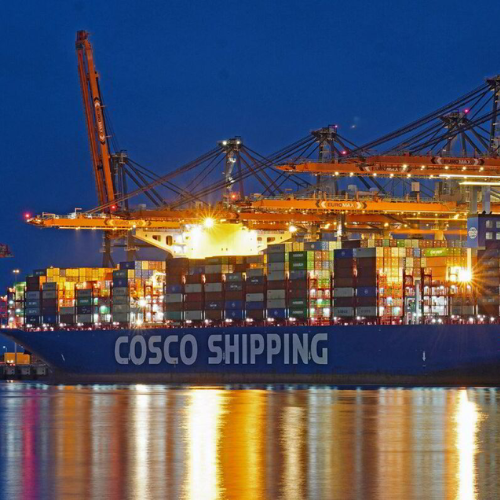In a move that has drawn global attention, the United States government has placed China’s biggest shipowner, China Cosco Shipping, on a “blacklist” for its alleged connections to the Chinese military. The decision is part of heightened scrutiny on Chinese companies and their ties to government operations. This step comes at a time when Beijing is attempting to stabilize its economy amid uncertainties on the world stage.
Cosco, a state-owned shipping giant, is the largest shipowner in the world with a fleet of over 1,000 vessels, including oil tankers, container ships, and bulk carriers. The blacklisting, announced in a US Federal Register filing, identifies Cosco and other companies as “military companies operating in the US.” While no specific penalties or sanctions have been imposed, the move could discourage American firms from doing business with these companies, leading to potential disruptions in global trade.
What Does Blacklisting Mean?
The US Department of Defense decided to classify Cosco and several other Chinese companies as linked to China’s military. This type of blacklisting does not immediately result in legal penalties but is intended to reduce cooperation between these companies and American businesses.
In 2019, Cosco faced similar challenges when it was sanctioned by the US for transporting Iranian oil. Those sanctions caused oil shipping rates to surge globally before they were lifted in 2020. This time, however, the impact may differ, according to analysts.
US Hits Back at China: Sanctions on Integrity Tech Over Cyber Threats
The announcement has already caused ripples in the financial markets. On the day the news broke, Cosco’s shares dropped by more than 4% on the Hong Kong Stock Exchange, underperforming the broader market. While the full consequences of the blacklisting remain uncertain, experts believe it may lead to more challenges for Cosco, particularly in container shipping and trade with the US.
One of Cosco’s most important trade routes is the transpacific route, which accounts for 28% of its total shipping volume. Trade between China and North America makes up a significant part of the global shipping industry, with about 20% of container imports in North America coming from China. If Cosco’s ships are barred from US ports, it could have a significant impact on global trade.
Other Companies on the List
Cosco is not the only company under scrutiny. Other major Chinese firms in the shipping and energy sectors have also been targeted. The US has named China State Shipbuilding Corp and China Shipbuilding Trading Co as part of the same blacklist. These companies are significant players in shipbuilding and play a crucial role in manufacturing and exporting ships globally.
Additionally, China National Offshore Oil Corp (CNOOC), one of China’s largest oil and gas companies, is also on the list. CNOOC owns several key oil and gas projects in the US, including exploration sites in the Gulf of Mexico. Analysts believe this blacklisting may force CNOOC to reconsider its investments and operations in the US.
China Escalates Trade War with U.S. by Targeting Major Companies
Another company named by the US is Sinotrans & CSC Holdings, a large shipowner with an extensive fleet of tankers and bulk carriers. All these companies play vital roles in global trade and energy transportation.
A Ripple Effect Across Shipping
The blacklisting has sparked concerns across the shipping industry. Analysts have pointed out that the decision could lead to disruptions in trade and possibly affect freight rates for crude oil, dry bulk, and container shipping.
For companies that compete with Cosco, however, this development could present an opportunity. If Cosco faces trading restrictions in the US, other shipping companies might take advantage of the gap left behind in the market.
This US action also highlights the growing tensions between the two largest economies in the world. It highlights Washington’s increased focus on monitoring Chinese companies and their potential influence on American industries.
The global shipping industry now faces uncertainty, as companies and markets react to this unexpected move. While the full consequences of this decision are yet to unfold, it marks another chapter in the complex and often tense relationship between the US and China.


